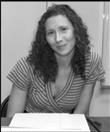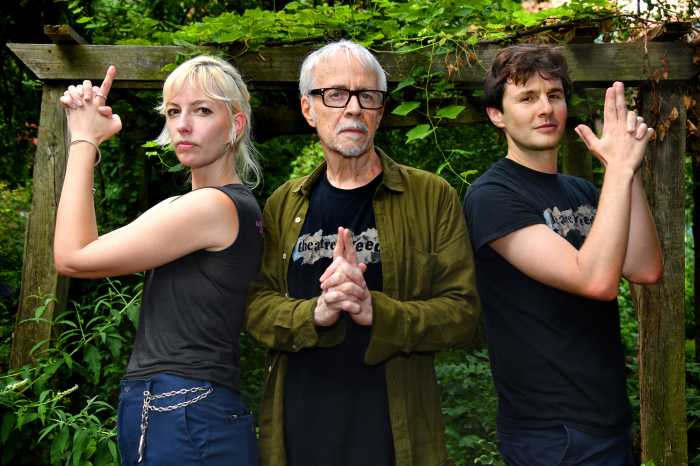By Anindita Dasgupta
One year after Manhattan Borough President Scott Stringer released a study stating that community education councils — the replacement for the former community school boards — were essentially ineffective, District 2’s C.E.C. is heading into its new term. While the District 2 C.E.C. has seven new members, not much else has changed about the way it does — or doesn’t — function.
Mayor Mike Bloomberg created the C.E.C.s in 2004 after phasing out the old community school boards. The school boards had been meant to give parents a voice in polices affecting their children; but after years of board infighting, complicated election processes and corruption, Bloomberg finally got rid of them.
The C.E.C.s are meant to reflect the wishes of parents in the community. The president, secretary and treasurer of each Parent Teacher Association and Parent Association in the district vote to elect nine of the members, and two members are appointed by the borough president. Stringer’s report last year showed that the majority of C.E.C. members were not fulfilling their responsibilities.
“Sadly, this report shows that D.O.E. is failing to deliver basic duties and, in doing so, they are further quieting the already-muffled voices of parents,” he said last year at a press conference at the Tweed Courthouse, on Chambers St., which houses the D.O.E. “It is time for D.O.E. to face the facts, find solutions and uphold their obligation under the law to see that parents have a real seat at the table.”
This year, the District 2 C.E.C. — which covers Lower Manhattan, Chinatown, the West Village, Chelsea and most of the Upper East Side — has four returning members. While some are frustrated with the little say their councils seem to have in Department of Education policies, they still are hopeful for a constructive year. The new members, meanwhile, are ready to soak up as much information as possible and convey it to the rest of the parent community.
The new local C.E.C. has delayed until September its internal elections for officers. Usually, elections will be held at the new council’s first meeting — which was in July — but many of the new members felt they didn’t know each other well enough to vote with assurance.
New District 2 C.E.C. members:
Anne Daniel: Daniel, an East Village resident, hopes to apply her experience from working on the P.S. 40 P.T.A. to helping the rest of the District 2 schools. “I’m more interested on a larger level. Overcrowding applies all over Manhattan, where they’re building everywhere,” she said. “If it’s affecting my school, it’s going to affect other schools.” She plans to personally tour as many schools as possible to remind people that the C.E.C. is there for them. “The more we reach out to people, the more information we’re going to be able to give,” she said.
Carlos Domingo: Domingo comes to the council with 17 years of teaching experience and a bachelor’s degree in science and education, and is currently writing a book on parenting and educational communications technology. While he thinks about his children, who attend Murry Bergtraum High School in Lower Manhattan and Bayard Taylor Elementary School on the Upper East Side, he feels it is important to look at the district as a whole. “No matter how much you teach your own kids,” he said, “it’s not going to mean anything if the downward tide is pulling down the rest of the ships. If I have to help my kids in their education, I have to help all the other kids.”
Matthew Levey: Levey’s children attend P.S. 183 in Midtown, where he has been an active parent. Concerned with their education, he has read literature on school reform and even corresponded with some professors on reform issues. He is ready to listen to parents and try to sift through the dense education policy material to translate it to parents. He feels within District 2 there is a diverse population and a wide range of performance levels. Given those facts, he feels principals play a key role. “I feel principals are really competent enough to figure out what’s good for their school and students,” he said. “And if not, there are the C.E.C.s”
Jody Seki: Like her fellow C.E.C. members, Seki has been involved with the P.T.A. at her child’s school. Her daughter will be entering the second grade this fall at P.S. 59 in Midtown. Seki will be able to use her experience not only from working with the P.T.A. and helping out in her child’s classroom, but she will also be able to use her degree in higher education administration. Like her fellow council members, she worries about overcrowding, growing class sizes and issues surrounding the reorganization — under which schools are being allowed to pick between three ways to structure themselves based on their specific needs. “Our kids are so lucky to be here in New York City and have such a diverse body of students,” she said. “But it also takes a lot more resources to address different issues and different needs of the students.” She is positive about the work District 2’s council will do. “I think the C.E.C. is good because we can address specific concerns in our district,” she said.
Loren Harken: A P.S. 150 parent and Tribeca resident, Harken says she wants to increase attendance at C.E.C. meetings. “It could be really effective if people knew about it,” she said. Poor community attendance at meetings was an issue Stringer talked about in his report last year. Harken also will advocate for Tribeca’s education needs. “It’s a big district and as good as the schools have been and as much parental involvement as there is, I don’t want us to get overlooked,” she said. “I want to be as much of a voice for Tribeca as possible, with John [Scott].”
Michael Markowitz: Markowitz has a background in civil engineering. At the new council’s first meeting, he volunteered to draft a status report analyzing the Contracts for Excellence — the city’s plan to spend additional funding awarded as a result of the Campaign for Fiscal Equity lawsuit. By the September meeting, he hopes to “crunch some numbers” on where specifically the money is going in District 2 compared to the rest of the city. Markowitz, whose father was the Board of Education president in Berklee, Cal., is also concerned about school shortages across the city. “We’re heading for a big school shortage,” he said. “It’s not just about class sizes.” He said that with so many new residential buildings being built all over the city, there won’t be enough schools to handle the students that move into the district.
Paul Gong: Gong is B.P. Stringer’s new appointee. A well-known Chinatown advocate, Gong intends to be a voice for that community. While he is concerned about the usual education issues, like class size, curriculum development and standardized testing, he specifically is concerned about English Language Learners — students whose second language is English — and helping parents new to the U.S. have more of a voice within their community. He hopes to visit schools and meet with parents and teachers to discuss when E.L.L. education could stop. Often, as children get older and become more assimilated, their need for E.L.L. instruction decreases. “We could turn those resources elsewhere,” he said.
Returning District 2 C.E.C. members:
John Scott: A Tribeca resident for more than 30 years, Scott has long been active in the community. In addition to serving in leadership positions on various community organizations, Scott was founder and first chairperson of Community Board 1’s Youth Committee. With his daughter being one of the first students at the new P.S. 234 in 1976, the school became a special project for him.
Last year, as a borough president appointee, Scott focused on Special Education students’ needs as a member of the C.E.C.’s Special Education Committee. This year, he’ll be looking closely at the district superintendent’s role. Based on the reorganization, each district’s superintendent will spend the majority of his or her time observing schools outside their own district. Scott worries how this may affect C.E.C. members scheduling and conducting visits to schools they observe — which is part of their responsibilities.
Rebecca Daniels: This West Village resident will be running for C.E.C. chairperson in the upcoming election. She has been active at School of the Future, where she has a child entering 12th grade. She served as president to the school’s Parents Association and School-based Leadership Team. She has another child at Lab School. Last year, with fellow C.E.C. member Mary Silver, Daniels created a parents’ newsletter. “Parents were looking to get more information and didn’t necessarily have time to come to meetings or even wait for P.T.A., S.L.T. or even C.E.C. meetings to get that information,” she said. “It was also a way to get people to come to us.” She said she definitely wants to start the newsletter up again this year.
Mary Silver: Silver doesn’t believe much has changed since Stringer’s report last year. “It is only different in that we have new members, but not in the structure or role we have,” said Silver, who lives near Midtown. Regarding the limited training members receive, she feels more training is necessary. “People don’t know basic information as council members or what their roles are,” she said. She is also concerned about informing parents about the reorganization. “Parents are really uninformed about the reorganization,” she said. “It’s not that they don’t want to be, but they’re just not.” She said the councils, while good in practice, are not as effective in theory. “I’m hoping the chancellor is going to make some changes that will make that theory a reality,” she said. “In theory, we are supposed to be advocates for students and parents, and that’s a really good thing.”
Shirley Smith: Smith was a borough president appointee to the C.E.C. last year. She lives in Greenwich Village where she is a member of Community Board 2, on which she was formerly co-chairperson of the Youth Committee. She has more than 40 years experience as a school administrator, education consultant and college professor. Smith declined to be interviewed for this article.





































